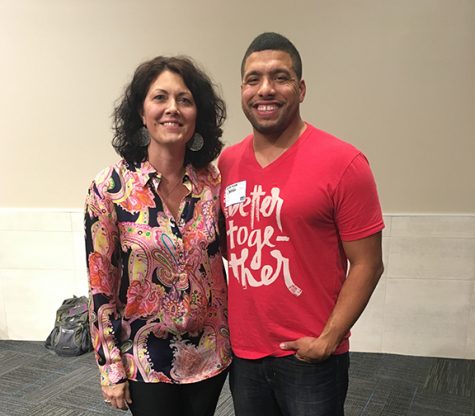Op-Ed: Stars We Cannot Reach
Guest Columnist urges readers to consider how ingrained practices of sexism are not only apparent in the political sphere, but have become part of our daily routines
On October 7, a conversation Donald Trump had back in 2005 was leaked. In this discussion, Trump described his ability to assault women without facing consequences due to his notoriety and wealth. The nation’s response was one of outrage, with many top Republicans calling for Trump to drop out of the election. Around Omaha and the rest of the country, people have been asking questions like “What happens when young girls see this man for an example” or “How could someone like this have the presidential nomination?”
I argue that our nation is asking the wrong questions.
Instead of asking what will happen our to children after they see what Trump is doing, consider how ingrained the practice of sexism has become in our daily routines. Rather than wondering how Trump has come to power, question the fraternity presidents, teachers, business leaders, and officers who have been accused of abuse or assault without facing ramifications.
Sexism and assault are issues that should not be politicized. Immediately after mentioning issues like police violence, assault allegations, and structural sexist practices, the discussion is polarized by divisions such as Republican versus Democrat, man versus woman, or some other arbitrary categories. Even now in our country, the immediate response by Democrats and Republicans has been driven by campaign strategy. News pundits discuss not the cultural structures that perpetuate sexist ideology and violence against women and instead examine if Trump’s campaign can bounce back. We ask if the next generation of young women and men will escape our centuries of sexism and yet fail to take ownership of our hand in the problem.
Trump is the product of the people. So is Secretary Clinton. It is our compliance with the behaviors of our friends, family members, and leaders that allows them to behave as we’ve seen so far. We cannot demand that a man selected by his constituents drop out of a race and assume that action will stop all sexist ideology, just as it is impossible to demand that another leader remain perfectly transparent in their actions without first lifting the veil of dissonance our whole society shrouds itself with when confronted with the stark reality that this nation is still not safe for women.
Donald Trump is not the reason that women research safety statistics at universities before applying. He is not the reason that women don’t pursue careers in STEM fields as often as their male peers. Finally, Trump is not the reason we raise our young boys to be afraid of showing emotion or weakness. His actions are merely symbolic of a larger society where those problems have been covered up until they’re deemed permissible by victim-blaming, pseudo-science, and fear.
That is not to say that Trump lacks culpability for the actions he’s taken and words he has spoken. Of course, this nation’s leaders must be held to a high standard of behavior. As a result, a person who has a history of racism, Islamophobia, and blatant sexism should not hold public office. Yet we cannot expect that this election will be the only one where our values come under attack, and it is outright dangerous to pretend that Donald Trump was nominated by accident; our nation’s climate has allowed a man who threatens to deport millions of Muslims, to build a wall, and to jail his opponent to be on this elections’ ballot.
Being active in our upcoming election is mandatory for all citizens who wish to see a democracy that works for our nation’s people. But I urge the students of Millard North, and the rest of this country, to consider these issues as mattering outside the context of this election. The real, lived experiences of women in our country should not be thrown around for a perverted form of objectivism just as the rights of our citizens must cease to be viewed in the context of political strategy. Rather than toppling a figurehead for an ideology, we ought to combat that ideology within ourselves and community so that no young child has to wish on stars they can only see through the glass ceiling.



